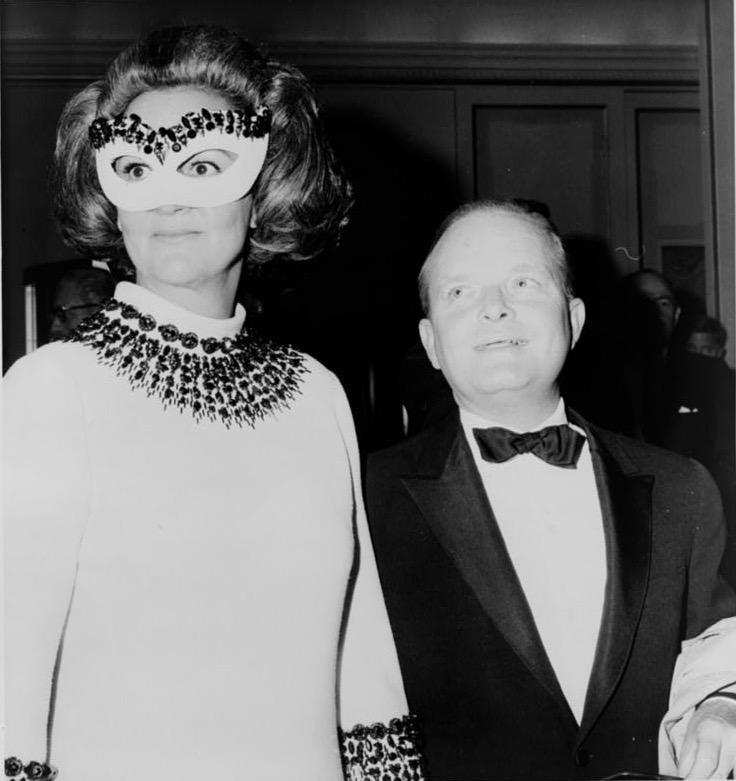In episode five of “Capote vs. the Swans,” the attention-grabbing FX series streaming on Hulu, we learn some of the least flattering inside dirt on C.Z. Guest, Lee Radziwill, Slim Keith, and Babe Paley. The dirt, that is, that was not entirely dished by Truman Capote in a slick magazine, and thus he becomes a touch more sympathetic in the face of their awfulness.
Difficult, these society women were — selfish, exclusionary, bad at mothering, good at punishing their husbands, even if they so often deserved it. And so why didn’t Truman go there in his tell-all, lightly fictionalized Esquire takedown, he’s asked by James Baldwin in the dream sequence of all dream sequences. Wracked by guilt, are you, Truman? On the contrary, Baldwin tells him, you’re a revolutionary storming the gates of social hierarchy and should, if anything, double down on it.
Before this episode, titled “The Secret Inner Lives of Swans,” you could be forgiven for thinking of our late-adopter Sagaponack resident as a snitch and a backstabber, his status as a high-society hanger-on and supplicant — the court jester, the entertainment — perhaps having driven him insane and, as ever, to drink.
They were never close, more like rivals in the gay literary stratosphere, and that’s why the appearance of Baldwin is so brilliant, for he alone, marvelously played by Chris Chalk, brings Truman to his senses, throwing a tall glass of the strong stuff against the wall to emphasize the wasting of this flower, this butterfly’s gift. Capote was near the end of his truncated life at the time, but what’s a few decades between almost-friends?
In fact, Capote abandoned his true gift well before that. In the 1960s he said he’d surveyed his early work and pronounced it fine, he had succeeded in what he was trying to do, but he thought it somehow overdone, and in his style he had moved on. In contrast, in the dispiritingly self-aggrandizing preface to “Music for Chameleons,” his 1980 collection of late work and short pieces that spent an inordinate amount of time on the best-seller list, he lays out his grand scheme of incorporating all manner of writing into one concerted new way of seeing. Whatever that meant.
Sticking strictly to fiction, the stories in that book simply do not measure up to, say, the sweetness and off-the-charts lyricism of “The Grass Harp,” his 1951 novella of Southern oddballs — two older women and a young Truman stand-in — who retreat to a life up in a treehouse, “a raft floating in a sea of leaves.”
At one point, as the orphaned speaker looks back on his time with his aged cousin and her friend, he muses, “If some wizard would like to make me a present, let him give me a bottle filled with the voices of that kitchen, the ha ha ha and fire whispering, a bottle brimming with its buttery sugary bakery smells.”
One morning, off in town, “broom-sweepings fogged doorways, rolled trashbarrels berated the cool cat-quiet streets.”
And so on. He wasn’t out of his 20s when it came out.
Back then he wrote of the South of butterbean vines, Indian grass, dragonfly ferns. The natural world. Faulkner warned us we were done for if we turned our backs on it. We turned our backs on it.

